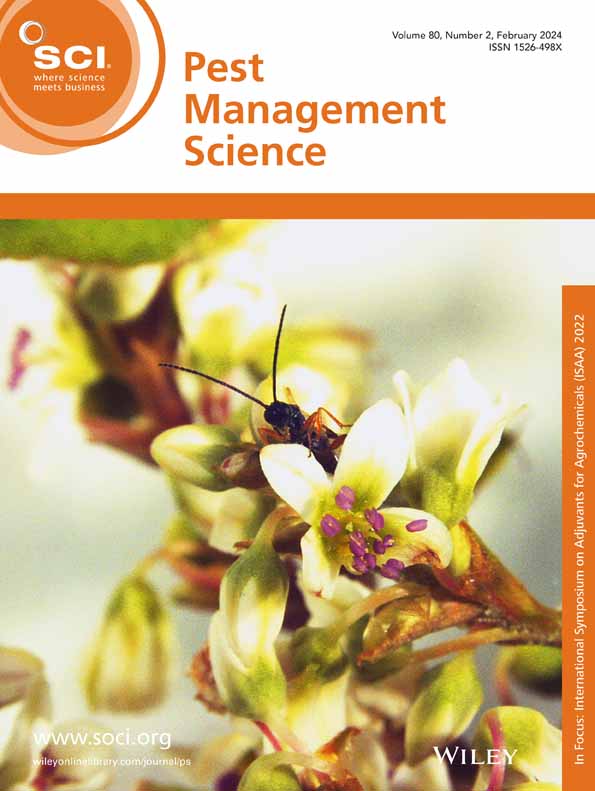Functional analysis of a downregulated guanylate kinase gene associated with the mechanism of action of 6-methylcoumarin against the whitefly Bemisia tabaci
Abstract
BACKGROUND
6-Methylcoumarin is a botanical compound that displays prominent activity against Bemisia tabaci. The guanylate kinase (GUK) is vital for maintaining intracellular Ca2+ equilibrium. Downregulation of GUK gene expression has been observed in B. tabaci exposed to 6-methylcoumarin. However, the insecticidal mechanism of 6-methylcoumarin against B. tabaci remains unclear.
RESULTS
6-Methylcoumarin, in both greenhouse and field assays, possessed excellent control efficacy against whitefly. In addition, 6-methylcoumarin significantly induced intracellular Ca2+ overload. Furthermore, RNA sequencing, Quantitative Polymerase Chain Reaction, and Western blotting analyses revealed that the GUK gene was significantly downregulated after 6-methylcoumarin treatment in whiteflies. Importantly, RNA interference-mediated silencing of the GUK gene increased the susceptibility of B. tabaci to 6-methylcoumarin. Moreover, molecular docking and microscale thermophoresis suggested that GUK amino acids TYR55, TYR83, ALA76 and ILE104 may be crucial binding sites for 6-methylcoumarin, exhibiting strong interactions (Kd = 3.27 μM). This binding likely distorts the GUK structure, implying that it exerts its potential function against whiteflies by directly targeting the GUK protein.
CONCLUSIONS
This study elucidates the insecticidal mechanism of 6-methylcoumarin, which involves the inhibition of GUK transcription and disruption of Ca2+ homeostasis. These findings suggest that 6-methylcoumarin may be a promising environmentally friendly candidate for B. tabaci control. © 2025 Society of Chemical Industry.




 求助内容:
求助内容: 应助结果提醒方式:
应助结果提醒方式:


